Infinite Machine’s P1 electric scooter blends performance, practicality and cyberpunk style
The P1 electric scooter from New York-based start-up Infinite Machine is a visually striking urban ride with zero emissions and practical features

Infinite Machine’s P1 electric scooter is launched by the American start-up with grand plans for the future of mobility. Founded by Joseph and Eddie Cohen, and with a team that includes a former product designer at Google and Microsoft, Infinite Machine parlays the brothers’ experience in start-up culture and product design to create a bold new iteration of the classic urban scooter.
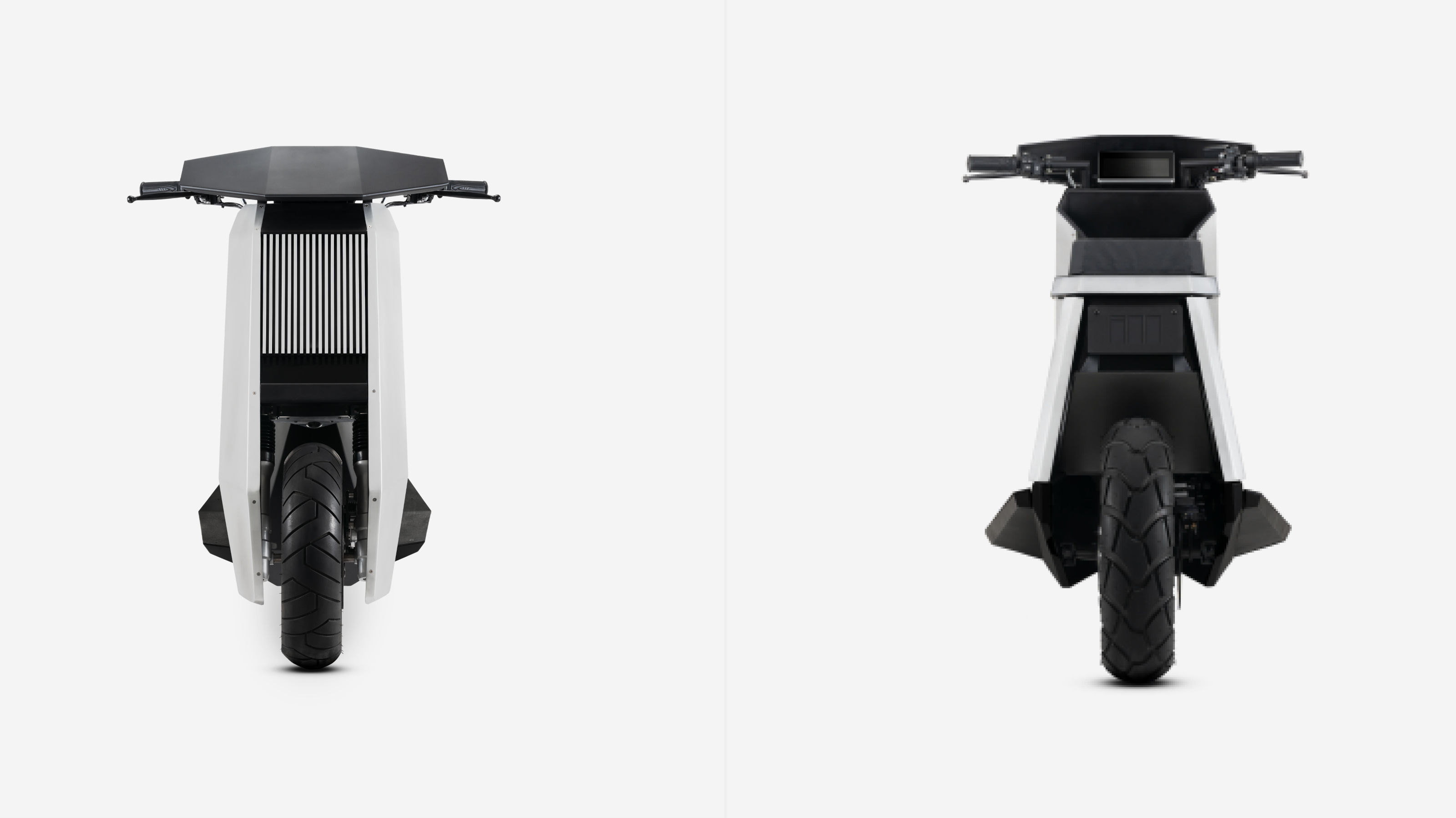
With its faceted forms and high specification, the P1 has superficial aesthetic ties to the Tesla Cybertruck, but here the function has been considered from the outset and not been crowbarred into a dramatic form the sake of it. The swappable 4.3KwH battery system and clever onboard storage solutions make the most of the form, which favours solid shapes, not skeletal structural outlines.
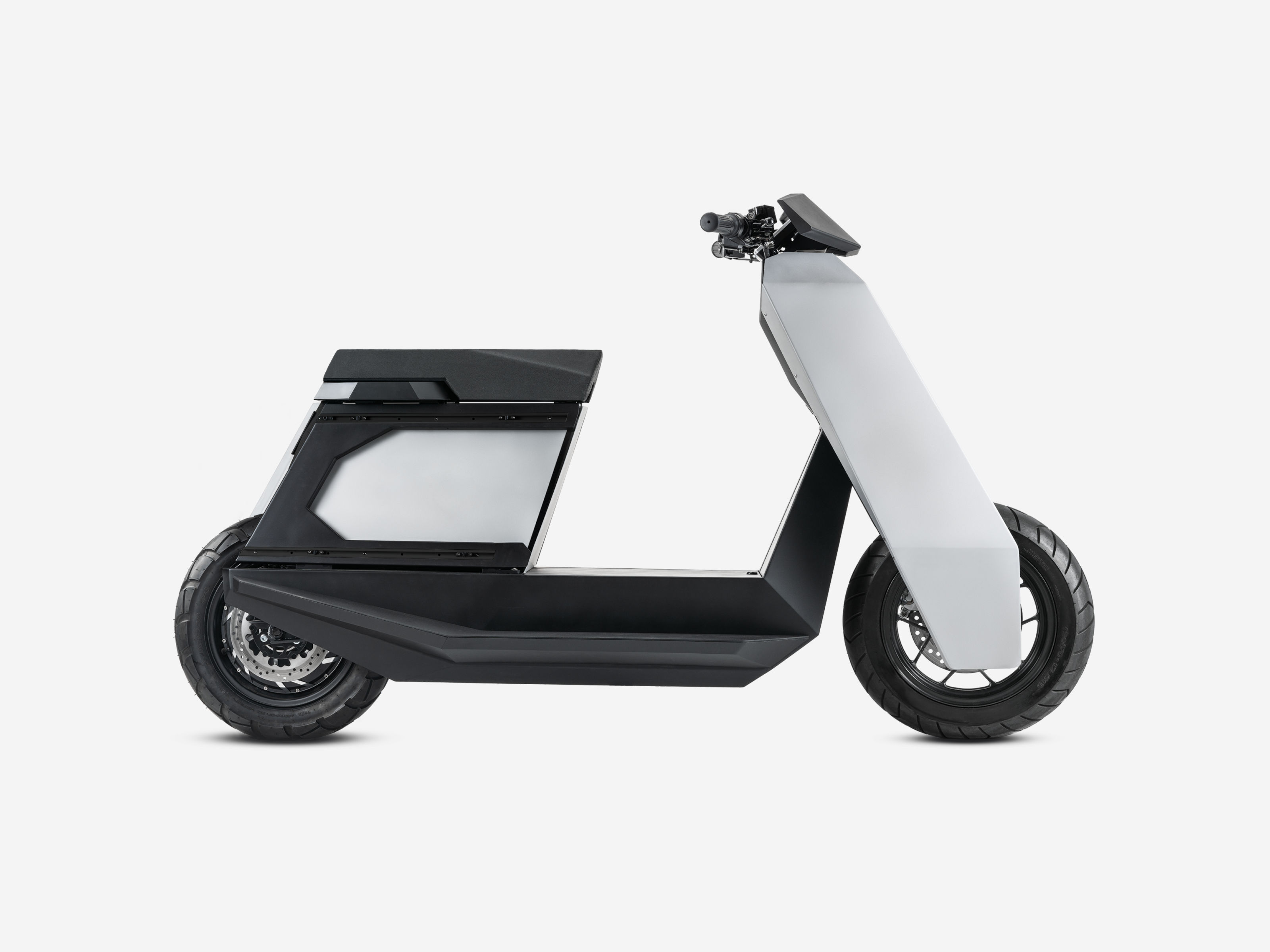
Built using a steel chassis and aluminium panels, the P1 has a top speed of 55mph and a projected range of around 60 miles in an urban environment. Riders can select from four drive modes – Eco, Performance, Reverse, and Turbo Boost – and the removable battery is designed to be charged at home or in the office. Apple CarPlay and Android Auto are available as standard, and there’s a cloud-based alarm system.
We spoke to the Cohens about their new product and the path to creating Infinite Machine.
Infinite Machine P1 electric scooter: designed to ‘make your life better’
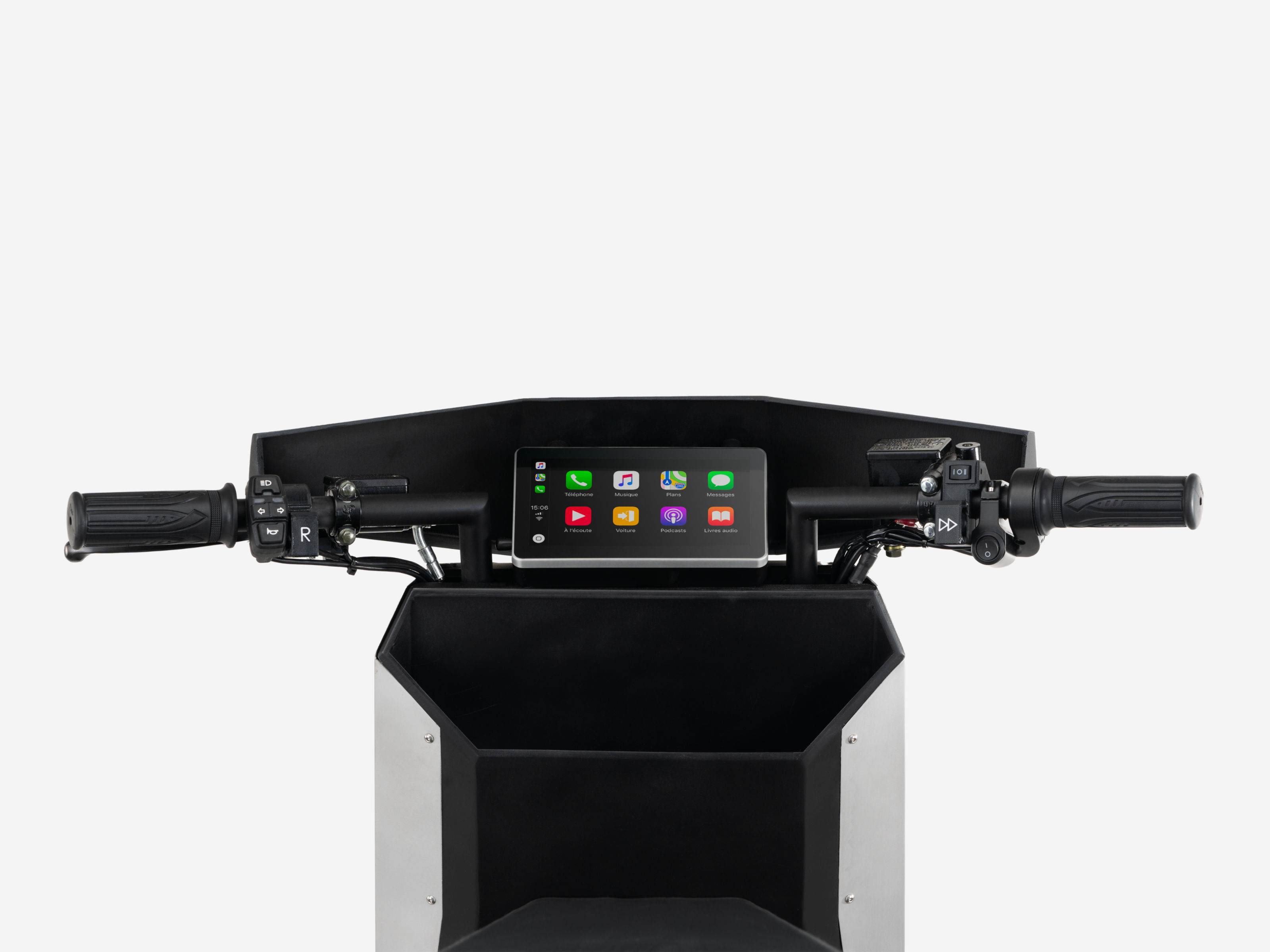
Wallpaper*: You've leaned into the hard-edged, cyberpunk aesthetic. Aside from the looks, are there any practical benefits to the shape in terms of production and use?
Joseph and Eddie Cohen: There are a few principles that guided the design of P1: we wanted something that looked great, something that stood up to the elements of a city like New York, and something that we could rapidly prototype and eventually mass-manufacture. Planar anodized aluminium panels and a powder-coated steel chassis gave us all three.
We’ve long been inspired by brutalist architects like Marcel Breuer and artists like Donald Judd, as well as legendary car designers like Marcello Gandini. We designed P1 to look better over time – a durable tool with honest materials. And because of the simple forms, we were able to prototype and refine our design in our own shop without expensive moulds. This benefit carries into scaled manufacturing, where we can be super nimble with tooling and not need massive tools to scale.
Receive our daily digest of inspiration, escapism and design stories from around the world direct to your inbox.
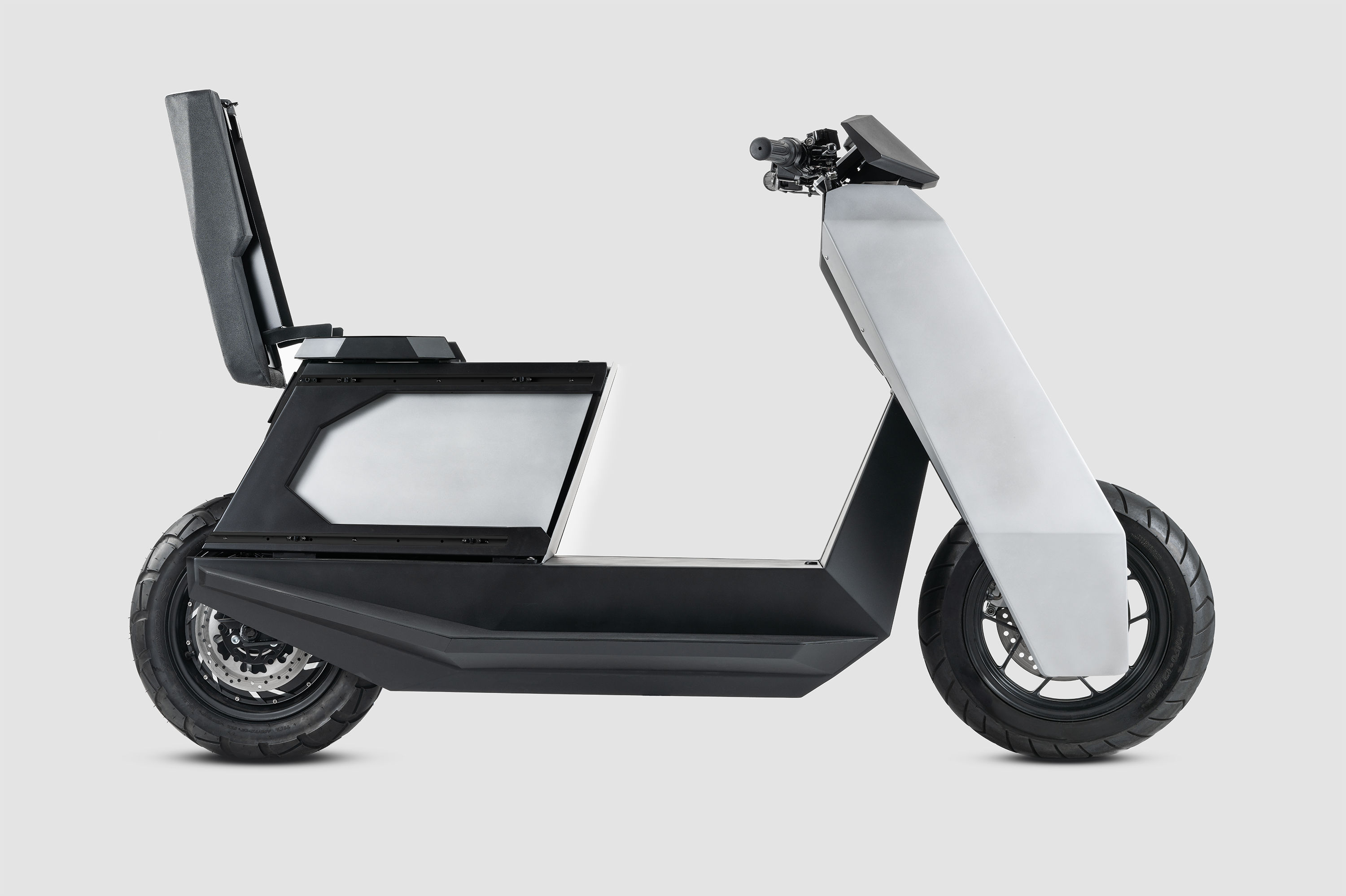
W*: What do you think buyers are looking for in an electric scooter? Is it style or practicality?
J and EC: We think it’s both form and function. A vehicle needs to look great and work well. P1 is the fastest, most nimble vehicle in its class. It has tons of storage, modular accessories, and advanced technology throughout. Our goal was to make a product that inspired you – and made your life better.
Vehicles have long been objects of desire and self-expression. This has been mostly true in the car market, and we want to bring that sensibility to non-car vehicles.
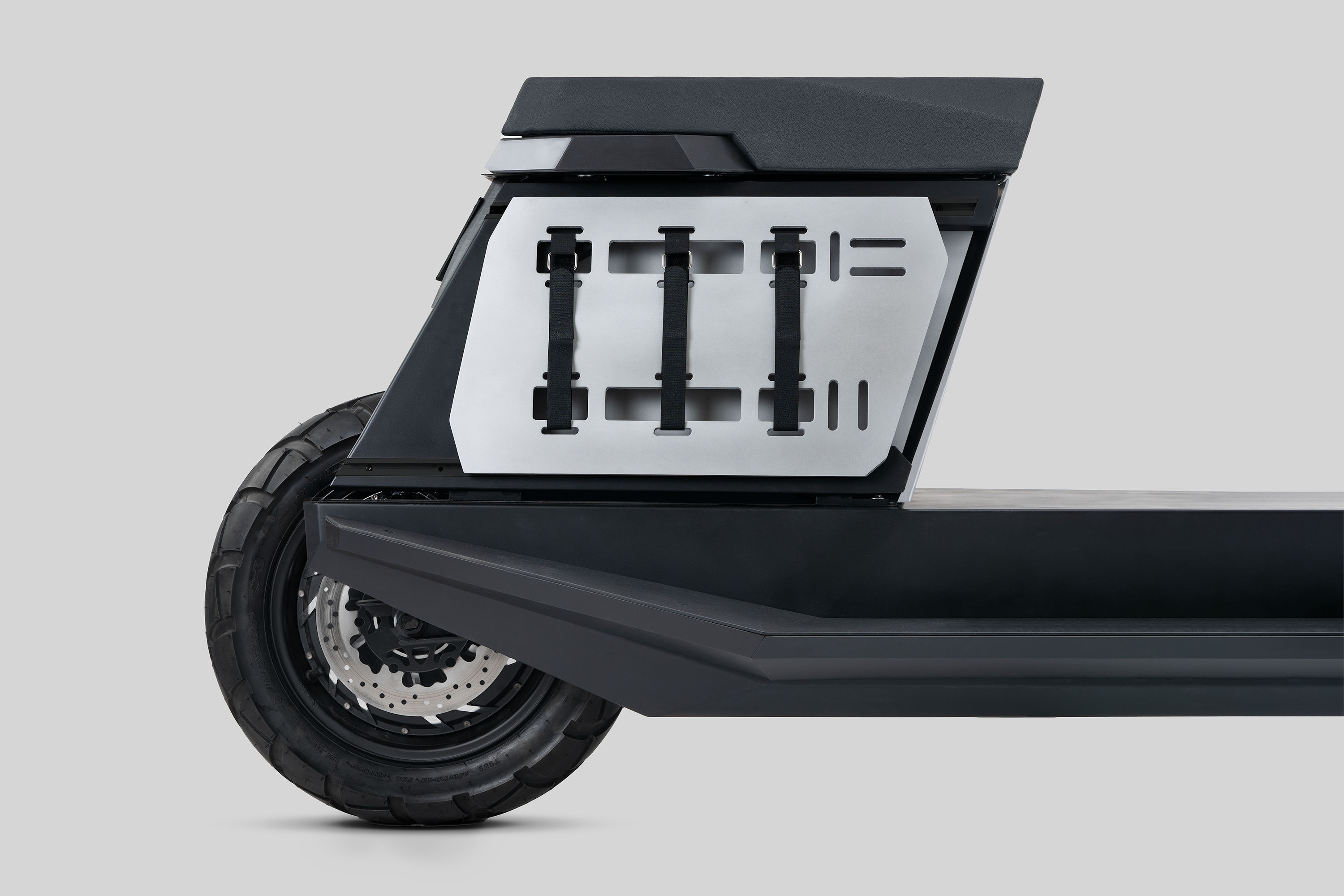
W*: After the launch edition, what sort of numbers are you hoping to produce and sell? Is there a big scooter culture in the US?
J and EC: After our initial batch of 1,000 units, we hope to be selling hundreds of thousands if not millions of vehicles a year. We are starting with the US and will expand globally with time. Scooter culture in the US is growing quickly, especially in cities like our home market of New York. Americans are realising that scooters are far more practical than cars for getting around a city.
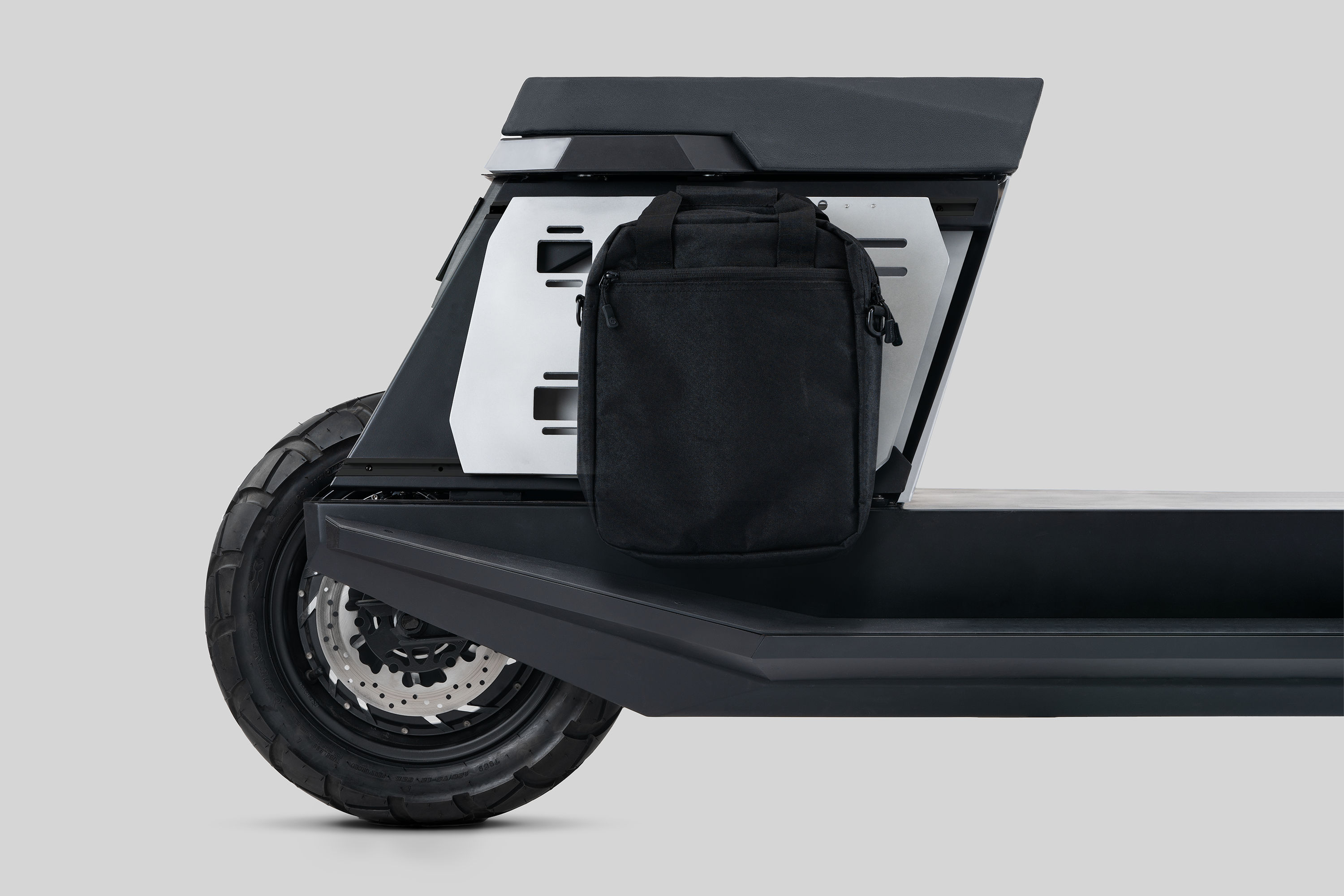
W*: What are your backgrounds? Do you have previous experience with transportation design?
J and EC: Joe started an internet company called Universe that won an Apple Design Award. Eddie started a products brand centred around meditation called Walden. We’re both product designers, vehicle enthusiasts, and lifelong New Yorkers.
Our co-founder and chief engineer Zach Cooper has been designing and building vehicles his whole life, and our creative director Calvin Lien built Walden from the ground up with Eddie after designing the Pixel phones at Google. The rest of our team comes from Boosted Board, Tesla, and other top technology and design companies.
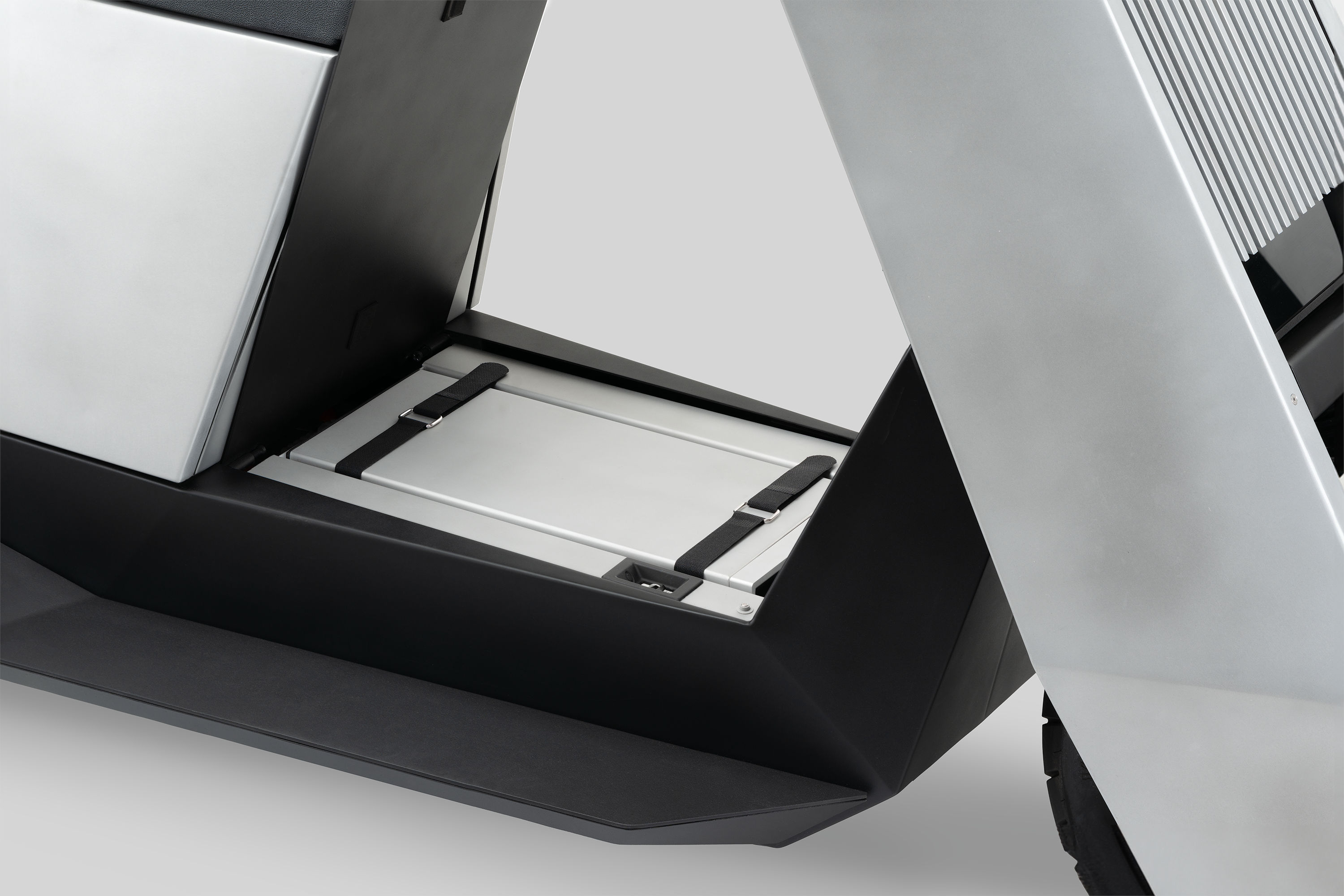
W*: Can the P1 be sold in markets outside of the US?
J and EC: Not currently, but soon!
W*: Would you ever consider developing other electric vehicles, from bikes to city cars?
J and EC: Yes, absolutely. In time, we will make a full line of vehicles. Our goal is to make the best non-cars for every use in a city. We know that cities are better with fewer cars, and we believe the best way to accelerate that transition is by making really great alternatives to them.
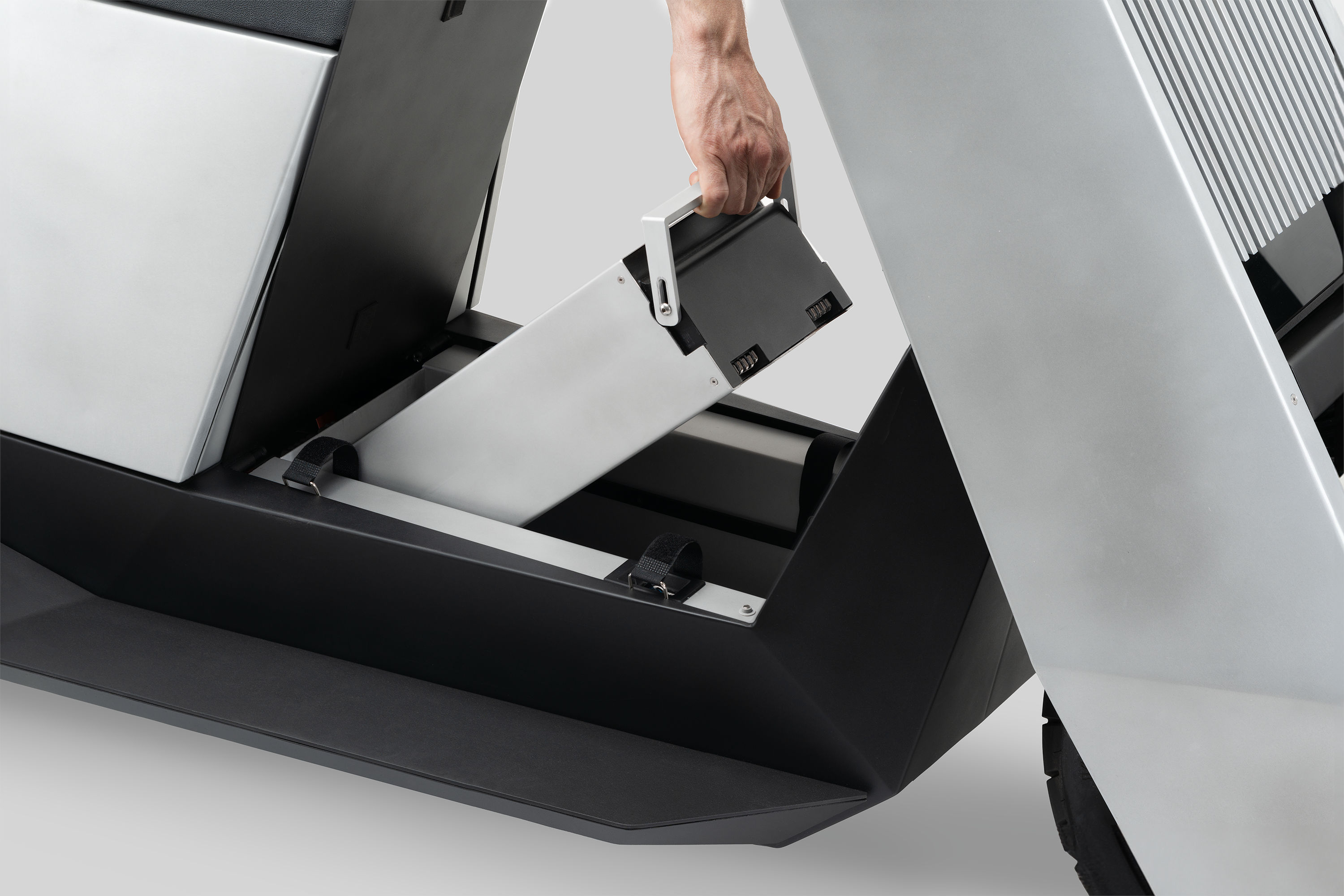
Infinite Machine P1 launched with an edition of 1,000 units, priced from $10,000, InfiniteMachine.com, @infinitemachine
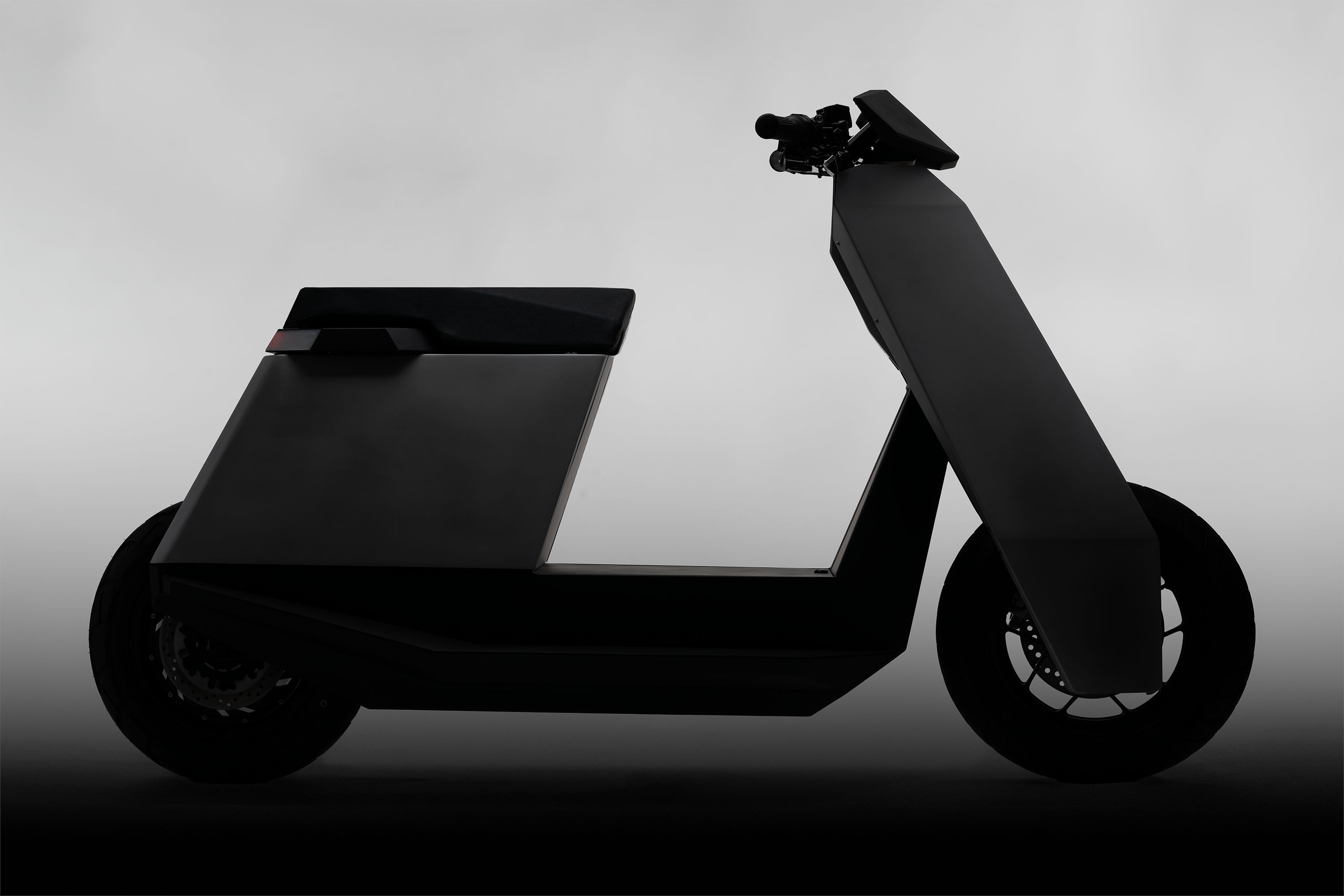
Jonathan Bell has written for Wallpaper* magazine since 1999, covering everything from architecture and transport design to books, tech and graphic design. He is now the magazine’s Transport and Technology Editor. Jonathan has written and edited 15 books, including Concept Car Design, 21st Century House, and The New Modern House. He is also the host of Wallpaper’s first podcast.